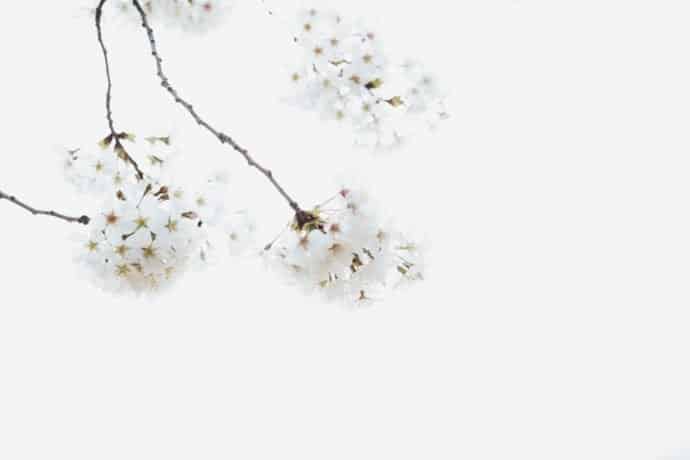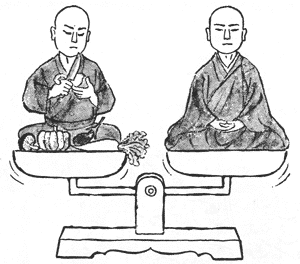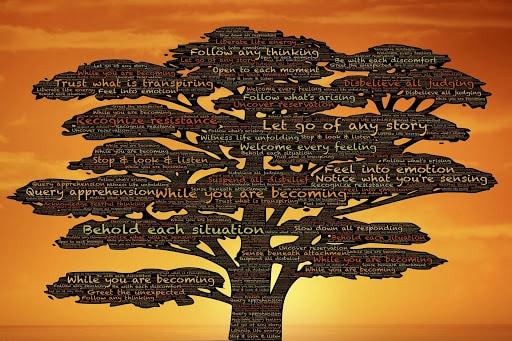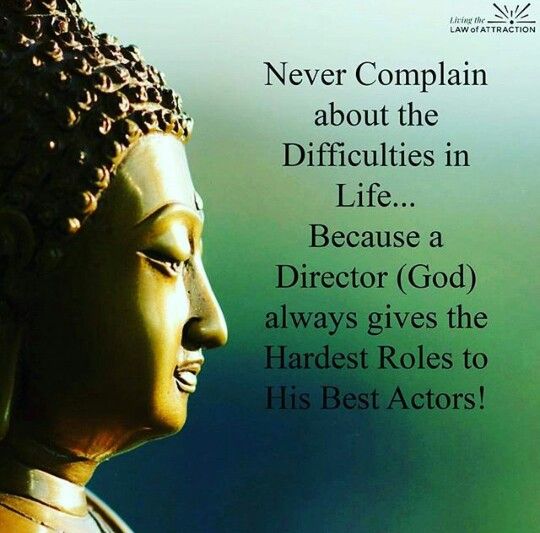A person who discovers the direction of his life in zazen, who vows and at the same time lives by repentance through zazen, is called a bodhisattva.
This means that a bodhisattva is an ordinary person who has found her life direction in buddha, in practicing the way of life of a buddha. You are a bodhisattva, I am a bodhisattva. There are illustrious bodhisattvas like Kannon (Skt. Avalokiteshvara) and Monju (Skt. Manjushri), who embody compassion and wisdom, but we have to have confidence that we, too, are bodhisattvas. Even as ordinary human beings, when we live by vow the meaning of our lives totally changes. A bodhisattva living by vow is distinguished from a person living by the continuation of his karma.
There is no need to deprecate ourselves thinking that, since we are ordinary human beings, we aren’t qualified to be bodhisattvas. Precisely because we are ordinary human beings, we possess this earthly flesh; yet, since we aim in the direction of buddha in zazen, we can make our effort in peace. Most people live by their desires or karma. They go through their lives dragged around by desires and hindered by the consequences of previous harmful actions. In Japanese that kind of life is called gosshō no bompu.
Gosshō are the obstructions to practicing the Way caused by our evil actions in the past. Bompu simply means ordinary human being—that is, one who lives by karma. Our actions are dictated by our karma: we are born into this world with our desires and may live our whole lives just reacting or responding to them. In contrast to that is the way of life of a bodhisattva who lives by vow (ganshō no bosatsu). The life that flows through each of us and through everything around us is actually all connected. To say that, of course, means that who I really am cannot be separated from all the things that surround me. Or, to put it another way, all sentient beings have their existence and live within my life. This includes even the fate of all humankind—that, too, lies within me. Therefore, my direction becomes just how humanity might truly live out its life.
In other words, it is the motivation for living that is different for a bodhisattva. Ordinary people live thinking only about their own personal, narrow circumstances connected with their desires. In contrast to that a bodhisattva, though undeniably still an ordinary human being like everyone else, lives aiming at the well-being of everyone, as the direction of his or her own life. For us, as bodhisattvas all aspects of life, including the fate of humanity itself, live within us. It is with this in mind that we work to discover and manifest the most vital and alive posture we can find for living out our life. In our day-to-day lives, it is often hard to know what course of action best expresses our bodhisattva vow, because circumstances pull us in contradictory directions.
Going one way seems right and so does going in the opposite direction. How do you choose between competing “goods”? This is a very difficult problem. Most religious systems have a set of absolutes handed down by their God that tell you what is right or wrong. Buddhism has no absolute authority laying down the law. Instead, you yourself take up the way of a bodhisattva, living by vow and aiming at buddha. Because this is such an important issue and it always turns on the concrete details of the situation, I want to tell you a story at some length. It comes from Dōgen Zenji’s Regulations for Eihei Monastery (Eihei Shingi), in the section entitled “Regulations for the Officers” (Chiji Shingi).Guixing, a Zen master in Shexuan, China, was noted for his severity in training his disciples and for simplicity and frugality in his own daily affairs. He was highly respected by the monks who practiced under him. When Zen masters Fayuan of Shuzhou and Yihuai of Tianyi were young practitioners, they traveled a long way with some other young monks just to train under Guixing.It was the dead of winter when they arrived, but Guixing only shouted at them and told them to go away. On top of that, he threw water on them to get them to leave. Their robes were completely drenched. Everyone else left angrily, but Fayuan and Yihuai simply straightened their robes and sat zazen. Guixing shouted at them again. “Haven’t you guys gone yet? Get the hell out of here or I’ll beat you up!” People who are searching for the Way can’t be called true seekers if they’re going to pick up and pack their bags just because they get a little water thrown on them. If you’re serious in your searching and intention to become someone’s disciple, you have to be prepared to take whatever comes.
To practice Buddhism means to encounter the reality of life. Before I became a monk, I studied philosophy and Christianity, and lived in a world of ideas. To become a monk, however, meant I had to meet the reality of my life head-on, whatever it was, without trying to escape. When I became a monk, we were up every morning at 4 A.M. for zazen, then we chanted sutras, ate breakfast, and worked outside until dark. In the evening we sat zazen for two more hours. I was always cold at night, so I could never get to sleep. When four o’clock rolled around and we had to get up, there I’d be, shaking from the cold.
I kept feeling this was the first time in my life that I was confronted with the reality of life, and that it was essential for me not to look for a way out. There is a Buddhist expression, “Don’t love dragons like Sekkō.” There was a man called Sekkō who loved dragons. Sculptures, paintings, figurines, ornaments—his whole house was filled with dragons in one form or another.
Well, one day a real dragon happened to hear about Sekkō and figured that since he loved dragons so much, surely he would be delighted to meet a real one. But when the dragon stuck his head through the window of Sekkō’s room, Sekkō expired on the spot! Sekkō is a symbol for preferring imitation to the real thing. A person who tells everyone how important practice is and then gives up soon after he starts because it’s too hard to take is like a person who just likes sculpted dragons. When you meet a real “dragon” you should be filled with joy and resolve to wrestle with it. Fayuan approached Guixing. “We’ve had to walk more than a thousand miles to get here. Don’t think that you can drive us away by beating us or by splashing a little water on us.”
The power of life that is buried deep inside you will never rise up until you have become convinced that you’re walking the only path open for you. As weak-kneed as I was in those days, somehow I became a monk and managed to make it through the war and its aftermath despite the chaotic circumstances of that time. I was able to get through it all because I was convinced that there was no other way of life for me.
There is no way you could have gotten through those days thinking that if this didn’t work out you could always find something else to do. This is something we should always be sure of—that is, always walking the path that leaves no room for waffling. Only then will the power arise within you that will en- able you to say, “Don’t think you can drive us away by beating us or by splashing a little water on us.” It’s nothing to have a little water dumped over your head, but just to sit facing a wall with the attitude that it’s nothing at all can be incredibly difficult. Yet, once you sit with the conviction that zazen is the ultimate activity and perform that activity with the sense of it being nothing at all, then just that becomes ultimate activity. Guixing laughed. “All right, you two may stay and practice zazen here.”
Only when they proved that they were in earnest about walking the way of ulti- mate reality were they allowed to stay on and practice. Shortly after, Fayuan was asked to serve as tenzo [head cook]. The monks in the monastery were suffering under the severity of the discipline. Then it happened that Guixing left the monastery for a day. So, after a short time, Fayuan became the tenzo of the monastery.
Now, this Guixing really went to extremes with his severity, and the monks, having nothing substantial to eat, were suffering miserably. Fayuan stole the key to the storage room and took out enough flour for noodles to make a feast for all the monks. Here’s an interesting point about Dōgen Zenji. Many people who write about Dōgen create the impression that he was all purity and innocence and would never think of stealing. Yet here he is praising Fayuan’s theft of flour.
Everyone is chafing under the harness of Guixing’s discipline—they’re all suf- fering from malnutrition. But Fayuan knows that there is plenty of flour in the stor- age room, so he sneaks into the room, hauls out a load of flour, and proceeds to put together a meal to put the monks back on their feet. This was all very admirable of him to do—as long as he remained fully aware of what the probable consequences would be, a beating by the abbot. To be willing to put yourself out for everyone—that’s the attitude of a bodhisattva.
All our actions should be taken with the spirit of giving life to the overall situation surrounding us. And despite thinking in those terms, if you make a mistake, then you have to be willing to pay the price. It’s no good shrinking from the hell you might have to pay for the deed. Dōgen makes a point of praising Fayuan, saying, “We should learn particularly from Fayuan’s attitude. The attitude he showed toward his practice is extremely rare—his manner of doings things is something that should be consid- ered carefully.” This is the kind of man Dōgen was and it reflects the underlying tone of the entire “Regulations for the Officers.”
Suddenly, Guixing returned. Fayuan has been working on this fantastic meal, and just as it’s being put on the table and everyone’s gathered around, who should be there sitting down ready to eat along with everyone else but Guixing! After the meal, Guixing sat outside the hall and called for the tenzo. Fayuan came and Guixing asked him, “Did you steal flour from the storage room for that meal?” You can be sure he was hopping mad since he’d probably been saving that flour for some time. Fayuan took no time in replying. “Yes, I did. Punish me as you will.” “Well, whatever it cost, get out, go sell your robes and bowl, and pay for it! And after that, you’ll get thirty strokes and a boot out of here!”
Guixing really let him have it with both barrels, not only making him pay for it, but throwing him out and promising to beat him besides. Fayuan left the temple and found a place to stay in the nearby town. As the lodging was owned by the temple, he had a brother disciple go to the temple for him to ask the abbot’s permission to stay there. But Guixing refused. In those days in China, temples often had guest houses located nearby. Fayuan probably figured Guixing would allow him to stay there since it wasn’t on the temple grounds proper, but Guixing turned him down flat.
Fayuan then asked through his friend simply to be allowed to return to live in the main hall and follow along in practice with all of the other monks, completely forfeiting his former position in the temple. Again Guixing refused. One day, when Guixing happened to leave the temple again on business, he saw Fayuan standing in front of one of the temple’s lodging places. “So this is where you’ve been staying. You know this is temple property. How many days have you been here? And when are you going to pay for the room?” Fayuan said nothing. Here is one of the most important passages in this section. In our day-to-day life, where it is possible to defend or explain our actions, then I think we ought to do so. But there are times when defending ourselves or attempting to explain our situation just doesn’t work.
At those times, what else is there to do but shut up and die? Once there was a monk in our sangha named Dōki Zentetsu, who was conscripted during the war. Just before he died in battle, we received a long letter from him. He wrote, “There are many young men like myself here who could get shot at any moment. I really wonder about the sanity of it all, but if I do get hit, what else can I do but shut up and die?” It’s important to try to keep alive by staying out of the line of fire, but there come times when you find yourself standing right in it. Life just isn’t so cut-and-dried that it’s possible for us to eliminate that possibility. So far I’ve been fortunate enough to have lived for many years, and for that, I have to be grateful. Yet I always knew the day could arrive when there would be nothing else for me to do but be still and die. And there are times when defending yourself just doesn’t work and there is nothing else to do but be quiet and take whatever comes. A person who feels he has to defend himself every time his teacher says something to him isn’t really practicing Buddhism.
There are times when an evaluation or criticism by others hits home, but then there are other times when it’s way off the mark. If it’s correct, then you ought to sit on it for a while and consider the matter. If it isn’t, then it should be enough for you to tell yourself it’s off the mark and let it go at that. If you aren’t able to forget criticism by others, how can you really be living out the full reality of your life?
To practice Buddhism means to confront and live out the reality of your life, so if some unwarranted criticism comes along, your practice is to live it out by not getting all in a lather over it. Fayuan went around the town as a mendicant, carrying his bowl for donations, and returned in full all the money he owed the temple. One day Guixing happened to see Fayuan out on his rounds with his bowl. Returning to the monastery, the abbot told the monks that Fayuan truly possessed the attitude of one who is seeking the Way. Shortly after, he sent a message to Fayuan allowing him to return to the temple. Finally Guixing let him back in and even praised him, but confidentially, Guixing seems a bit too severe for me.
To be sure, what Fayuan did was technically wrong. Yet when the whole community was suffering from malnutrition, it was vital to have the kind of spirit he had. Of course, be careful that you don’t go out and twist what I’ve said to mean that stealing from others is perfectly all right. You have to remember that after Fayuan stole the noodles from the storage room and Guixing told him to pay for it, Fayuan didn’t just fold up. He went out and paid dearly for it. If someone comes along who’s completely at a loss as to what to do and asks for advice, as a bodhisattva you can’t just say that you don’t know, it’s not your problem.
That’s shirking your responsibility. Not taking responsibility for what you say or do is the safest way out. But when someone’s all mixed up, what choice have you but to reply with the best advice you can? You should know that it’s not enough for a bodhisattva to just uphold the precepts. There are times when you have to break them, too. It’s just that when you do, you have to do so with the resolve of also being willing to accept whatever consequences may follow.
That’s what “together with all sentient beings,” issai shujō to tomo ni, means—together regardless of what hell one might fall into. With the whole monastery suffering from malnutrition, who wouldn’t do what Fayuan did? Up to the point where he took the key and stole the food from the storage room, he looks like Robin Hood, and it is not such an unusual story. But Guix- ing is in a completely different position. He had to find out if Fayuan took the noodles merely to enhance his own reputation in the monastery or if he did it fully willing to accept the consequences. That’s why Guixing had to be so severe. So Guixing carried out his role as the leader of the community, and Fayuan bore the burden for what he had done. It’s not enough just to know the definition of bodhisattva. You have to study the actions of a bodhisattva and then behave like one. Regarding the question “What is a bodhisattva?” you could also define a bodhisattva as one who acts as a true adult. That is, most people in the world act like children. There is a chapter in the Shōbōgenzō entitled “Eight Aspects of an Enlightened Being” (Hachi Dainin Gaku). The word dainin means “true adult” or “bodhisattva.”
Today most people who are called adults are only pseudo-adults. Physically, they grow up and become adult, but spiritually too many people never mature to adulthood. They don’t behave as adults in their daily lives. A bodhisattva is one who sees the world through adult eyes and whose actions are the actions of a true adult.
*from the book Opening the Hand of Thought: Foundations of Zen Buddhist Practice, by Kosho Uchiyama, Translated and edited by Tom Wright, Jisho Warner and Shohaku Okumura




